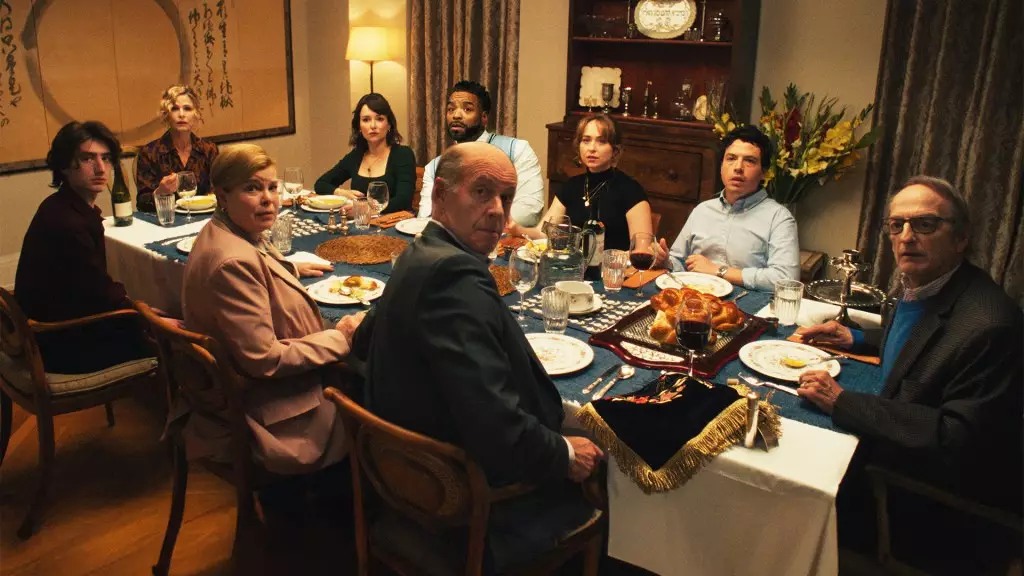The recent performance of Menemsha Films’ *Bad Shabbos* exemplifies a rare kind of triumph in an industry often dismissive of small, independent cinema. Achieving over $1 million in U.S. box office revenue—primarily through limited screenings and a slow, organic rollout—demonstrates that niche films with authentic voices can carve out a substantial space in a market dominated by blockbuster mediocrity. This film’s steady climb, from a modest debut to sustained weeks in theaters, underscores the power of word-of-mouth and community-centric marketing in an era obsessed with mass appeal and formulaic storytelling.
Indie cinema’s resilience defies the common narrative that everything must be big, loud, or franchise-driven. Films like *Hundreds of Beavers*, with its dialogue-free, supernatural winter epic, and documentaries like *Secret Mall Apartment*, prove that creative risk-taking still resonates. They show that audiences are willing to engage with stories that challenge conventional narratives, even if these films are initially perceived as niche or commercially risky. However, the industry’s tendency to overlook these gems until they demonstrate consistent profitability is problematic—it’s a system that often discourages innovation and authentic storytelling for fear of financial failure.
Limited Releases as a Testing Ground for Cultural Relevance
The strategy of releasing films on a limited basis and allowing them to grow organically seems to be helping indie titles gain traction. For example, *Bad Shabbos* had its initial run in Delray Beach, Florida, where it played exclusively for 16 weeks, accumulating $130k. Its subsequent expansion into New York and Los Angeles (breaking the $100k mark in each city) highlights an alternative, more sustainable path to theatrical success—one rooted in community engagement rather than blockbuster hype.
This approach raises a critical question: why isn’t the industry more willing to prioritize these kinds of stories from the outset? The slowly nurturing strategy signifies a respect for the audience’s intelligence and patience, challenging the misconception that all profitable films must be mass-market hits within a week. Instead, it suggests that films with cultural nuance, humor, and authenticity can foster a dedicated viewer base that sustains them over time. The extended theatrical runs in cities like Boston, Los Angeles, and San Francisco demonstrate that there is genuine appetite for narratively rich, socially conscious films—even if they don’t debut with a splash.
The Myth of the Blockbuster and the Future of Independent Cinema
The industry’s obsession with opening weekend box office figures often obscures the real power battles happening beneath the surface. *Bad Shabbos*’s success challenges the myth that only major studio productions can generate substantial revenue. It shows that, with patience and a dedicated audience, independent films can thrive long-term, driven more by quality and word-of-mouth than gimmicks or star power.
Films like *Cloud*, opening exclusively in New York and grossing a modest but meaningful amount, exemplify the continued significance of theatrical release for indie cinema. Even if their numbers may appear small compared to Hollywood tentpoles, these films often carry a cultural weight and artistic integrity that multi-million dollar productions lack. They serve as vital proof that the industry should invest more in storytelling that reflects diverse human experiences, rather than funneling all resources into safe, predictable content.
Indie filmmakers and distributors are proving that longevity and cultural relevance are possible without relying on spectacle. The industry should take notice: audiences crave diversity, authenticity, and humor—elements that often get lost in blockbuster monotony. As these films demonstrate, success isn’t only about immediate revenue but also about establishing a meaningful connection with viewers who seek films that challenge, entertain, and reflect their realities.
In embracing this model, the industry might finally escape the cycle of stagnation. Instead of chasing ephemeral hits, it should focus on cultivating films that can grow and flourish over time—just like *Bad Shabbos* and its peers—affirming that indie cinema remains a vital, transformative force capable of reshaping the cultural landscape.

Leave a Reply